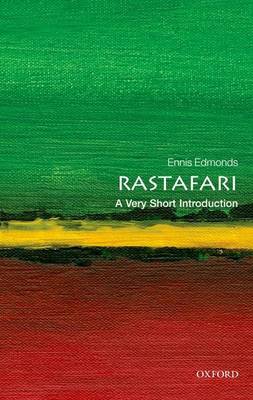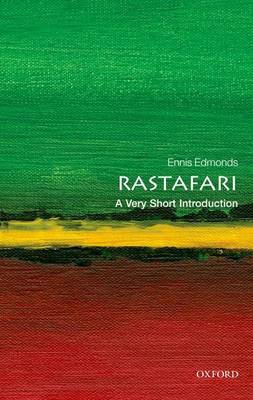
Je cadeautjes zeker op tijd in huis hebben voor de feestdagen? Kom langs in onze winkels en vind het perfecte geschenk!
- Afhalen na 1 uur in een winkel met voorraad
- Gratis thuislevering in België vanaf € 30
- Ruim aanbod met 7 miljoen producten
Je cadeautjes zeker op tijd in huis hebben voor de feestdagen? Kom langs in onze winkels en vind het perfecte geschenk!
- Afhalen na 1 uur in een winkel met voorraad
- Gratis thuislevering in België vanaf € 30
- Ruim aanbod met 7 miljoen producten
Zoeken
€ 13,95
+ 27 punten
Uitvoering
Omschrijving
From its obscure beginnings in Jamaica in the early 1930s, Rastafari has grown into an international socio-religious movement. It is estimated that 700,000 to 1 million people worldwide have embraced Rastafari, and adherents of the movement can be found in most of the major population centers and many outposts of the world. Most believers worship Haile Selassie I, Emperor of Ethiopia (ruled 1930-1974), as God incarnate. They often embrace the spiritual use of cannabis and reject western society, called Babylon. Believers proclaim Africa (also "Zion") as the original birthplace of mankind, and the call to repatriation to Africa is a key tenet. Rastafari: A Very Short Introduction provides an account of this widespread but often poorly understood movement. Ennis B. Edmonds looks at the essential history of Rastafari, including its principles and practices and its internal character and configuration. He examines its global spread, its far-reaching influence on cultural and artistic production in the Caribbean and beyond, and its handling of gender issues.
Specificaties
Betrokkenen
- Auteur(s):
- Uitgeverij:
Inhoud
- Aantal bladzijden:
- 160
- Taal:
- Engels
- Reeks:
Eigenschappen
- Productcode (EAN):
- 9780199584529
- Verschijningsdatum:
- 7/02/2013
- Uitvoering:
- Paperback
- Formaat:
- Trade paperback (VS)
- Afmetingen:
- 116 mm x 170 mm
- Gewicht:
- 127 g

Alleen bij Standaard Boekhandel
+ 27 punten op je klantenkaart van Standaard Boekhandel
Beoordelingen
We publiceren alleen reviews die voldoen aan de voorwaarden voor reviews. Bekijk onze voorwaarden voor reviews.









